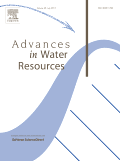
ADVANCES IN WATER RESOURCES
Scope & Guideline
Advancing water science for a sustainable future.
Introduction
Aims and Scopes
- Hydrological Modeling and Simulation:
The journal emphasizes the development and application of advanced hydrological models, including numerical and analytical methods, to simulate water flow and transport processes in various environments. - Water Quality and Contaminant Transport:
Research on the transport and fate of contaminants in water resources, including studies on groundwater contamination, remediation strategies, and the impacts of anthropogenic activities on water quality. - Climate Change Impacts on Water Resources:
Studies that assess the implications of climate variability and change on hydrological cycles, water availability, and water management practices. - Innovative Experimental Techniques:
The journal encourages the use of cutting-edge experimental methods to investigate water-related phenomena, including laboratory-scale studies and field experiments. - Interdisciplinary Approaches:
Research that integrates concepts from geosciences, engineering, environmental science, and data science to address complex water resource challenges. - Machine Learning and Data-Driven Methods:
The application of machine learning and artificial intelligence techniques in hydrology to improve predictions and decision-making processes in water resource management.
Trending and Emerging
- Physics-Informed Machine Learning:
The integration of physics-informed neural networks and machine learning techniques is gaining traction, enabling researchers to leverage data while adhering to physical laws in modeling complex hydrological processes. - Pore-Scale Modeling and Analysis:
There is an increasing focus on pore-scale modeling to understand fluid flow and transport mechanisms in porous media, particularly relevant for applications in groundwater management and CO2 sequestration. - Climate Adaptation Strategies:
Research aimed at developing adaptation strategies for water resource management in the face of climate change is on the rise, emphasizing resilience and sustainability. - Integrated Surface-Subsurface Hydrology:
Emerging studies are increasingly addressing the interactions between surface water and groundwater systems, highlighting the need for integrated approaches in hydrological modeling. - Advanced Remote Sensing Applications:
The use of remote sensing technologies for monitoring hydrological phenomena and water resources has become more prevalent, particularly in assessing spatial and temporal changes in water availability. - Data Assimilation Techniques:
The application of data assimilation methods in hydrological modeling is trending, allowing for improved parameter estimation and model predictions using real-time data.
Declining or Waning
- Traditional Hydrological Modeling Techniques:
There has been a noticeable decrease in publications focusing solely on traditional hydrological modeling methods, as researchers increasingly adopt advanced computational techniques and machine learning approaches. - Surface Water Hydrology:
Research specifically targeting surface water hydrology, including river flow modeling and surface runoff processes, has diminished as more emphasis is placed on integrated surface-subsurface interactions. - Simple Analytical Solutions:
The reliance on simple analytical solutions for hydrological equations appears to be declining, with a growing preference for complex numerical simulations that provide more accurate representations of hydrological processes. - Regional Water Management Strategies:
While regional water management remains important, the journal has seen fewer contributions focused solely on localized management strategies, as global and integrated approaches gain traction.
Similar Journals
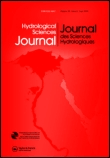
Hydrological Sciences Journal
Pioneering research in the realm of water management.Hydrological Sciences Journal, published by Taylor & Francis Ltd, is a leading peer-reviewed publication dedicated to advancing the field of hydrology, spanning topics from water management to climate impacts on hydrological systems. With an impressive impact factor and a noted Q1 category ranking in Water Science and Technology, the journal occupies a pivotal role in the academic landscape, facilitating high-quality research dissemination since its inception in 1982. The journal is indexed in Scopus, holding a commendable rank of #48 out of 261 in the Environmental Science category, placing it in the 81st percentile among its peers. Although it does not offer Open Access options, the journal ensures extensive reach and readership through institutional subscriptions. As it converges toward its milestone of 2024, the Hydrological Sciences Journal remains an indispensable resource for researchers, professionals, and students eager to explore the latest advancements and methodologies in hydrological research.

WATER RESOURCES MANAGEMENT
Innovating Approaches to Sustainable Water ManagementWATER RESOURCES MANAGEMENT is a prestigious journal published by SPRINGER, renowned for its contribution to the fields of Civil and Structural Engineering as well as Water Science and Technology. Operating since 1987, this journal has established itself as a vital resource for researchers, professionals, and students alike, boasting a remarkable impact factor and a Q1 designation in both relevant categories as of 2023. The journal is indexed in Scopus, achieving commendable ranks—34th in Environmental Science and 62nd in Civil and Structural Engineering, placing it in the top percentiles of its fields. Although it does not offer open access, WATER RESOURCES MANAGEMENT serves as a comprehensive platform for disseminating innovative research, discussions, and case studies that address the global challenges of water resource management. With a commitment to fostering knowledge and advancing the understanding of integrated water management solutions, this journal is indispensable for anyone engaged in these critical scientific domains.
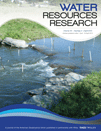
WATER RESOURCES RESEARCH
Empowering Knowledge in Water Resource ScienceWATER RESOURCES RESEARCH, published by the American Geophysical Union, stands as a premier journal in the field of environmental science, specifically within the domain of water science and technology. With an impressive impact factor and a categorical ranking of Q1 for 2023, it ranks within the top 10% of relevant journals, evidencing its critical role in advancing the knowledge and application of water resources research. Since its inception in 1965, the journal has been dedicated to rigorous research that addresses pressing global challenges related to water resource management, hydrology, and environmental sustainability. The journal's comprehensive publication scope aims to present innovative findings and methodologies that can shape effective policies and practices. Although it does not offer open access, the robust research it publishes continues to influence academics and practitioners alike, ensuring its position as an essential resource for anyone engaged in the pursuit of water-related knowledge and solutions.

Carpathian Journal of Earth and Environmental Sciences
Championing High-Quality Research in Earth SciencesCarpathian Journal of Earth and Environmental Sciences is a distinguished academic journal dedicated to advancing the interdisciplinary field of Earth and environmental sciences. Published by the Carpathian Association for Environment and Earth Sciences, this journal plays a pivotal role in disseminating high-quality research focused on the dynamic interactions between geological processes and environmental changes. With an ISSN of 1842-4090 and an E-ISSN of 1844-489X, the journal is indexed in Scopus and holds an esteemed Q3 quartile ranking in both Earth and Planetary Sciences and Environmental Science categories as of 2023. Since its inception in 2008, the Carpathian Journal has provided an open access platform for researchers, professionals, and students to share insights, foster collaboration, and engage in critical discussions on pressing environmental issues. By continuously contributing to the body of knowledge in this field, the journal not only enhances academic discourse but also promotes sustainable environmental practices across Romania and beyond.
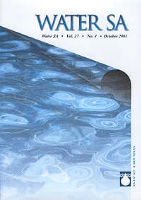
WATER SA
Illuminating solutions to global water challenges.WATER SA, published by the WATER RESEARCH COMMISSION, serves as a pivotal platform for interdisciplinary research in the areas of water science and technology. With an ISSN of 0378-4738 and an E-ISSN of 1816-7950, this open-access journal has been committed to disseminating knowledge since 2005, ensuring that research is freely accessible to a global audience. As of 2023, it holds a Q3 ranking in several key categories including Applied Microbiology and Biotechnology, Management, Monitoring, Policy and Law, Waste Management and Disposal, and Water Science and Technology. These rankings reflect its significant contribution to these disciplines, particularly in South Africa where it is based. With a history dating back to 1976 and converging research efforts extending through 2024, WATER SA aims to illuminate pressing water-related challenges and foster innovative solutions through rigorous scientific inquiry. Researchers, professionals, and students interested in the sustainability and management of water resources will find its comprehensive portfolio essential for advancing their work and understanding in an increasingly critical field.
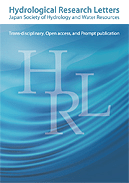
Hydrological Research Letters
Exploring Water Dynamics: Bridging Research and PolicyHydrological Research Letters (ISSN: 1882-3416) is a distinguished peer-reviewed journal published by JSHWR, JAGH, JAHS, JSPH in Japan. Established with open access since 2007, this journal serves as a critical platform for the dissemination of innovative research in the field of hydrology, water science, and technology. With an increasing impact factor, currently positioned in the Q3 quartile for both Earth and Planetary Sciences and Water Science and Technology, it attracts a diverse readership keen to stay abreast of groundbreaking findings that shape water management and environmental policy. Researchers, professionals, and students alike will find this publication an invaluable resource for enhancing their understanding of hydrological processes and their implications. The journal is committed to fostering open academic dialogue and encouraging high-quality contributions during its converging years from 2015 to 2024. For more information, authors and readers can access the journal at its address, C/O INT ACAD PRINTING CO, LTD, Shinjuku-ku, Tokyo, Japan.

Journal of Hydrology-Regional Studies
Advancing regional hydrology for sustainable solutions.Journal of Hydrology-Regional Studies, published by ELSEVIER in the Netherlands, stands as a leading open-access platform since 2014 for disseminating high-quality research in the fields of hydrology and water management. With an impressive impact factor and recognition as a Q1 journal in both Earth and Planetary Sciences and Water Science and Technology categories, it emphasizes regional studies that advance understanding of hydrological processes and their implications for sustainable management practices. The journal has established a significant global reach, evident from its Scopus rankings, which place it in the top percentiles within its disciplines, fostering a dynamic exchange of ideas among researchers, professionals, and students alike. By mobilizing critical insights and innovative solutions in hydrology, this journal aims to contribute to solving the pressing water-related challenges faced by our society.
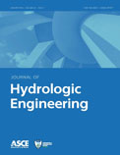
JOURNAL OF HYDROLOGIC ENGINEERING
Advancing Knowledge in Water Resource ManagementJOURNAL OF HYDROLOGIC ENGINEERING is a premier academic journal published by the ASCE - American Society of Civil Engineers, dedicated to advancing the field of hydrologic engineering through the dissemination of innovative research and methodologies. With an ISSN of 1084-0699 and E-ISSN 1943-5584, this journal serves a global audience and has established itself as an essential resource for professionals, researchers, and students in the civil and environmental engineering disciplines. Currently ranked in the Q2 category across multiple areas including Civil and Structural Engineering and Water Science and Technology, the journal promotes high-quality, peer-reviewed articles that address critical challenges in hydrology, water resources, and environmental management. Despite not being an open-access journal, it offers valuable insights that drive progress in sustainable engineering practices. The convergence of research from 1996 to 2024 makes it an invaluable archive for historical and cutting-edge contributions to the field, reflecting its commitment to fostering knowledge and innovation in hydrologic engineering.

Journal of Hydrology and Hydromechanics
Elevating the conversation on water dynamics and engineering.Journal of Hydrology and Hydromechanics, published by SCIENDO, is a prominent open access journal that has been disseminating crucial research findings in the fields of fluid flow, mechanical engineering, and water science since its inception in 1973. With its open access model established in 2009, the journal ensures that innovative research is available to a global audience, enhancing the visibility and impact of studies related to hydrological systems and their applications. The journal holds a commendable position within the academic community, reflected in its category quartiles, achieving Q2 rankings in 2023 across key areas such as Fluid Flow and Transfer Processes, Mechanical Engineering, and Water Science and Technology. Its Scopus rankings further highlight its relevance, placing it among the top journals in its categories. The Journal of Hydrology and Hydromechanics not only serves as a vital resource for researchers and professionals aiming to advance hydrological knowledge but also provides students with a wealth of information to better understand the complexities of water dynamics and associated engineering challenges.

Hydrology
Exploring the depths of hydrological knowledge.Hydrology, published by MDPI, is a prominent open-access journal dedicated to advancing the field of hydrological science. Since its establishment in 2014, the journal has garnered a reputation for excellence, reflected in its classification within the Q2 quartile for 2023 across multiple categories including Earth-Surface Processes, Oceanography, Water Science and Technology, and Waste Management and Disposal. Based in Switzerland, Hydrology provides a vital platform for scholars and practitioners to disseminate research findings, promote innovative methodologies, and foster discussions on current trends affecting water resources and management globally. The journal is easily accessible online and aims to significantly contribute to the understanding of hydrological processes, offering insights that are pivotal for addressing contemporary environmental challenges. With Scopus rankings showcasing its growing influence, Hydrology is a crucial resource for researchers, students, and professionals committed to water science and sustainable practices.